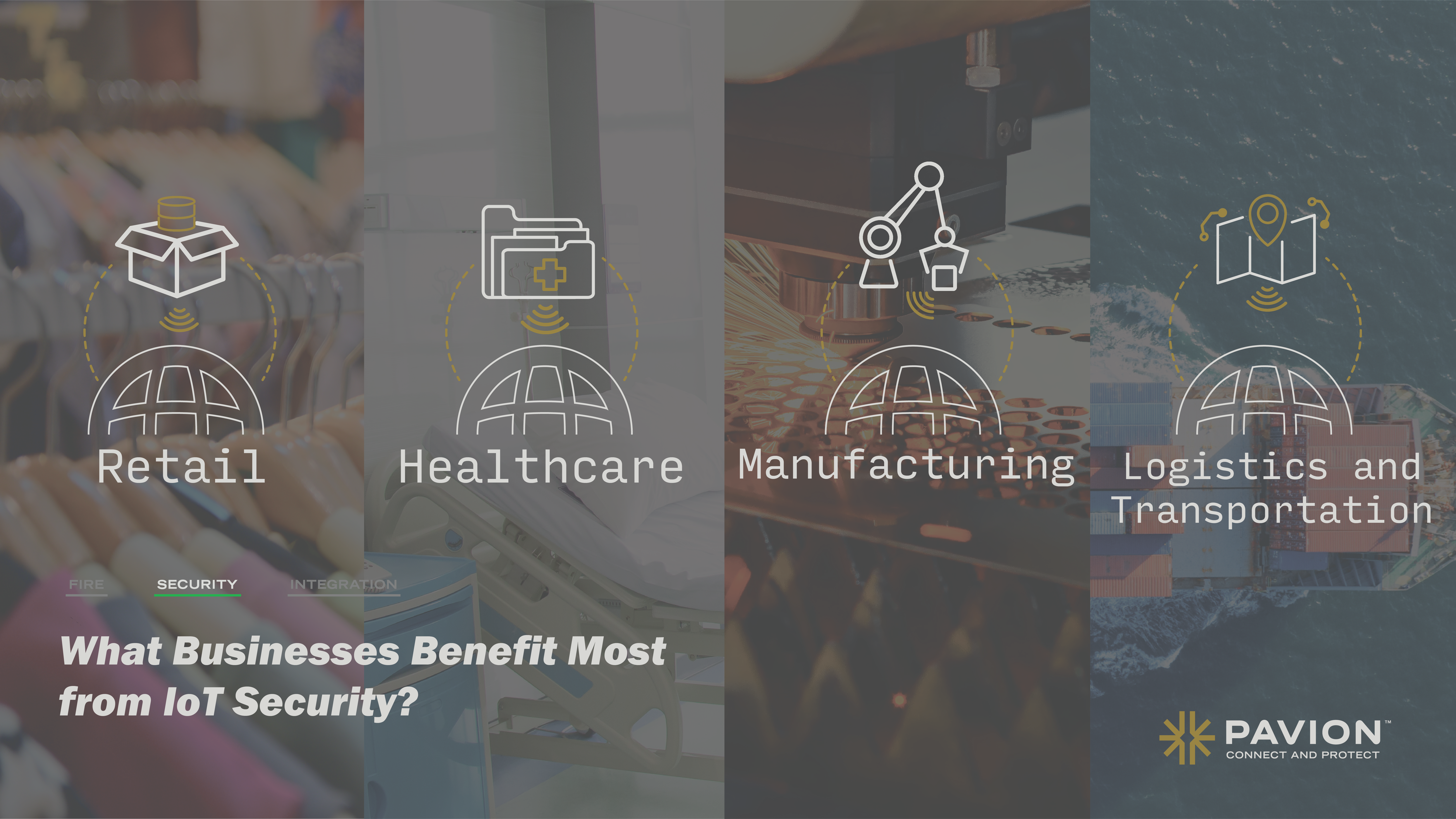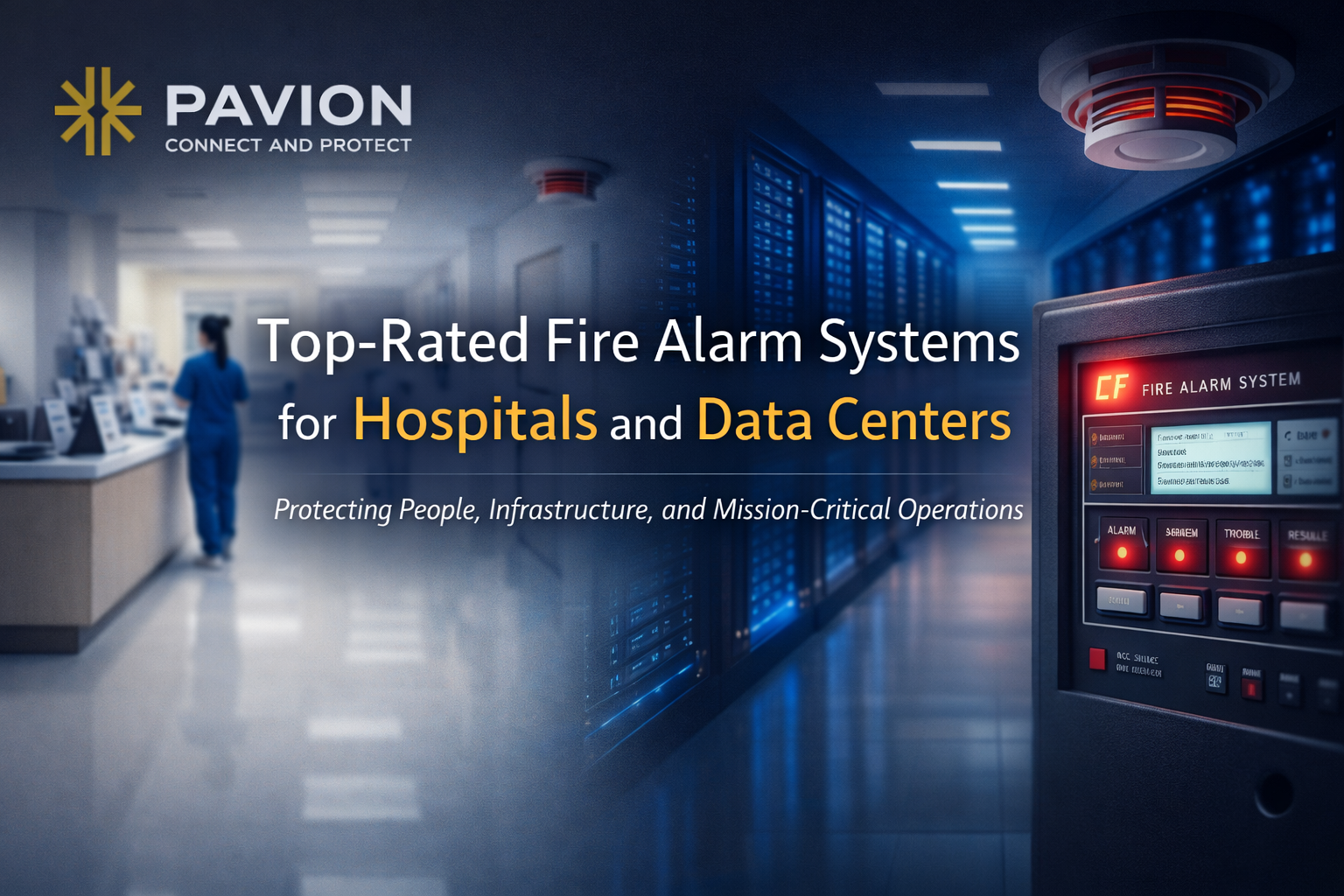
IoT Security: How Connected Devices Are Changing Business Safety
In the digital age, the Internet of Things (IoT) is rapidly transforming business operations and security. Connected devices are enabling real-time monitoring, offering unparalleled data-driven insights that enhance safety and efficiency across industries. While IoT security is becoming increasingly important to protect these devices and the valuable information they manage, businesses must also navigate the potential risks of an interconnected environment.
In this article, we will explore how IoT innovations are revolutionizing business safety, why securing IoT devices is crucial, and how companies can leverage IoT security devices to improve both physical and digital protection.
What is IoT Security in Business?
At its core, IoT security refers to the measures and protocols designed to protect IoT devices and the networks they connect to. IoT devices can range from security cameras and smart thermostats to complex industrial machinery and operational sensors. These devices collect and transmit data, providing businesses with real-time insights into operations, inventory, personnel, and more.
In the context of business, IoT security focuses on ensuring that these devices and the data they gather remain safe from cyberattacks and breaches. It involves safeguarding everything from device software to the networks that support them, ensuring businesses can rely on their connected devices without compromising safety or privacy.
How Does IoT Improve Security?
IoT has significantly transformed business security, providing enhanced protection through constant monitoring and data-driven decision-making. Here are some key ways IoT security devices improve safety for businesses:
- Real-Time Monitoring
IoT security devices offer real-time monitoring capabilities, allowing businesses to detect potential threats or breaches instantly. Whether it’s a business network security system detecting unauthorized access to an internal network or a smart camera identifying suspicious activity in a physical location, these devices offer proactive alerts and information. - Automated Responses
IoT security systems can be integrated with automation tools to respond immediately to detected threats. For example, when a motion sensor in a warehouse detects unauthorized movement, the system can automatically lock doors, trigger alarms, or notify security personnel, reducing response time and minimizing damage. - Data-Driven Insights
Connected devices can collect and analyze vast amounts of data, providing businesses with actionable insights into their security environment. This data helps businesses understand patterns, track vulnerabilities, and identify potential risks, improving overall safety protocols. - Improved Asset Protection
Smart sensors in warehouses or offices can track valuable assets in real-time, sending alerts if equipment is moved or tampered with. Similarly, in retail, IoT security devices can monitor inventory levels and prevent theft by sending immediate alerts to store managers.
“IoT systems are often overlooked in a comprehensive cyber security plan and can be a huge vulnerability for the attacker with the skillset that is able to exploit them.” – Andrew Bazemore, Cybersecurity Consultant at ION247, a Pavion Company.
Securing IoT Devices: The Challenge and the Solution
One of the biggest concerns surrounding IoT security is whether IoT devices are secure. The rapid adoption of IoT technologies has outpaced security developments, making these devices prime targets for cyberattacks. Since many IoT devices are constantly connected to the internet and business networks, they can be vulnerable to hacking if not properly protected.
Here are some key risks associated with IoT devices security:
- Insecure Connections
Some IoT devices are designed with weak or easily exploitable security features, such as hardcoded passwords or outdated encryption protocols. When these devices are connected to the internet or business networks, they can serve as entry points for malicious actors to infiltrate a company’s security system. - Data Privacy Concerns
Since IoT devices collect massive amounts of data, including sensitive business and customer information, any breach can lead to significant privacy violations. Without proper business network security, hackers can intercept and misuse this data for malicious purposes. - Lack of Regular Updates
Many IoT devices lack a streamlined process for updating their software, leaving them vulnerable to known security flaws. Without regular patches or security updates, connected devices become increasingly prone to attacks.
Andrew N. Bazemore states, “If IoT devices are left vulnerable or unsecure they could offer a way for an attacker to gain a foothold into your network. If the bad actor can secure a foothold via an IoT device, they will then begin to try and move laterally within your network to compromise more valuable systems and potentially put your data and intellectual property at risk.”
To mitigate these risks, businesses must prioritize securing IoT devices through encryption, strong authentication protocols, regular updates, and continuous monitoring.
Managing Data in IoT Security
As businesses continue to rely on IoT devices for data collection and monitoring, effective data management becomes crucial for ensuring security. Businesses must safeguard the sensitive information that IoT devices capture and transmit, ensuring that it is not intercepted or misused.
IoT systems generate vast amounts of data, and managing this data securely is essential. Businesses must implement secure storage and transmission protocols, such as end-to-end encryption, to protect this valuable information. Additionally, businesses should focus on ensuring data integrity by regularly checking for vulnerabilities and addressing potential threats before they cause harm.
In addition, businesses must decide how much data should be retained and for how long. Implementing effective data retention policies is essential for minimizing risks and ensuring compliance with privacy laws and regulations.
The Risks of IoT in Security
While the benefits of IoT in security are undeniable, businesses must also be aware of the risks. Here are a few potential security challenges that businesses may face when adopting IoT:
- Cyberattacks
With more devices connected to the internet, the number of potential attack vectors increases. Cybercriminals can exploit vulnerabilities in IoT devices to launch attacks such as Distributed Denial of Service (DDoS) or ransomware attacks, which can disrupt business operations or cause financial losses. - Device Interoperability Issues
In many cases, IoT devices from different manufacturers may not work seamlessly together. This can create gaps in security, as unintegrated devices may fail to communicate effectively, leaving critical security holes. - Physical Security Risks
While IoT security devices protect digital assets, they also need physical protection. Devices such as security cameras or smart locks can be tampered with or physically hacked if not properly secured. - Lack of Standardization
The rapid growth of the IoT market has resulted in a lack of standardization for device security. Different manufacturers implement different security features, which can make it difficult for businesses to ensure consistent protection across all devices.
To mitigate these risks, businesses must adopt a comprehensive business network security strategy that includes regular vulnerability assessments, threat monitoring, and collaboration with reputable device manufacturers to ensure the security of their IoT devices.
What Businesses Benefit Most from IoT Security?
Nearly every business can benefit from integrating IoT security devices, but certain industries stand to gain the most:
- Retail
Retailers use IoT devices for inventory management, customer behavior tracking, and enhancing in-store security. By securing IoT devices, they can prevent theft, manage stock more efficiently, and ensure a seamless customer experience. - Manufacturing
Manufacturers use IoT sensors to monitor machinery, improve productivity, and track supply chains. Ensuring these devices are secure protects sensitive production data and prevents operational disruptions. - Healthcare
In healthcare, IoT devices monitor patient conditions, track medical equipment, and secure sensitive data. Ensuring the security of these devices is vital to protecting patient privacy and maintaining regulatory compliance. - Logistics and Transportation
Logistics companies use IoT for fleet tracking, route optimization, and cargo monitoring. Securing these devices ensures the safe transportation of goods and prevents theft or loss.
Get Insights on IoT and Business Safety!
As businesses continue to evolve in an increasingly connected world, IoT security will remain an essential part of their overall security strategy. By embracing advanced IoT security devices and proactively managing their security, businesses can protect sensitive data, improve operational efficiency, and build trust with customers and employees.
Get insights on IoT and business safety! Contact us today to discover how you can secure your IoT devices and enhance your business’s overall security strategy.

